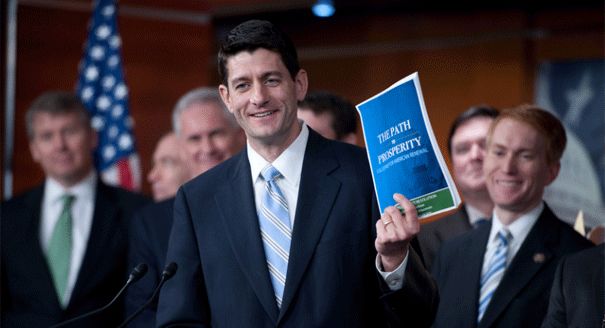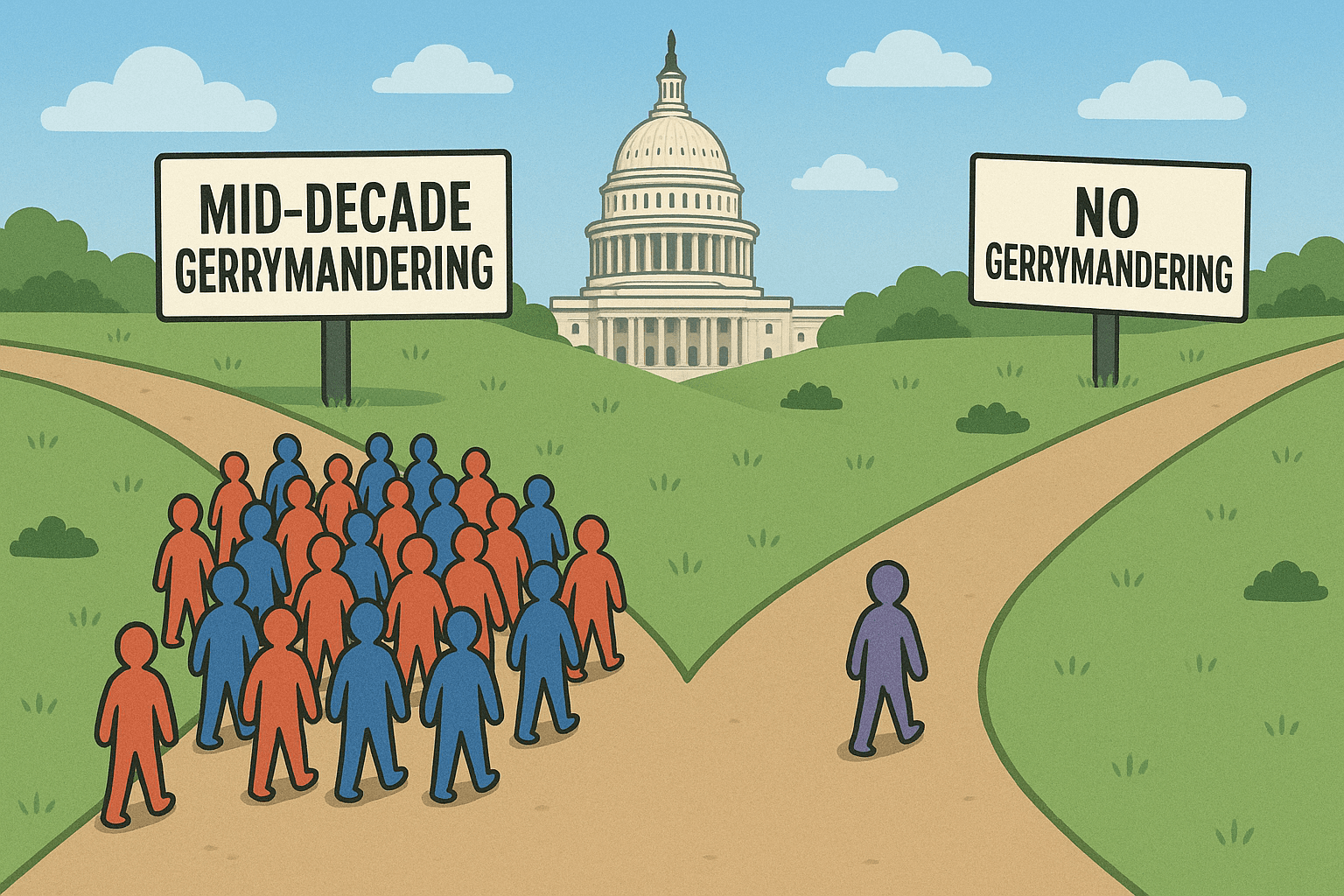Paul Ryan's Budget: Partisanship, Not Solutions

Representative Paul Ryan is known as a solutions man. He has gained a reputation for making difficult decisions, taking bold steps to balance the budget. Some have gone as far as labeling him the face of the GOP. However, his latest budget plan does not meet his own standards for a true, independent solution to our nation's woes.
President Obama's recent budget has been met with widespread criticism. Much of this is justified. It fails to propose a solution to the long-term debt crisis, instead adding trillions to the debt, and maintains yearly deficits well into the future.
Not surprisingly, his budget proposals from the last few years have drawn extensive scrutiny from GOP leaders. Paul Ryan was especially bold in criticizing the President's budget last April. He had this to say about the President's speech in defense of his proposal:
"Exploiting people’s emotions of fear, envy, and anxiety is not hope. It’s not change. It’s partisanship. We don’t need partisanship. We don’t need demagoguery. We need solutions. And we don’t need to keep punting to other people to make tough decisions. If we don’t make tough decisions today, our children are going to have to make much, much tougher decisions tomorrow."
Ryan had two main criticisms. He alleged the President's course was partisan, and that it left a tremendous burden on future generations. How does his own plan stand up to these two standards?
Paul Ryan's budget does cut some spending, but mainly on entitlement programs. Granted entitlement programs are a large part of federal spending, but true, non-partisan, independent, solutions must cut across the board. It is easy for a Republican to propose cutting programs favored mainly by Republicans. However, a partisan budget proposal does not recognize the fiscal reality of a Republican-controlled House, Democrat-controlled Senate, and Democratic president.
The plan makes cuts in certain areas only. The Washington Post puts it this way:
"The plan cuts $5.3 trillion over the next decade — entirely through deep cuts in entitlements and agency spending."
When it comes to Republican-favored programs, like defense spending, the Ryan budget does not make the tough choices:
"For fiscal year 2013, he is proposing a Pentagon base budget of $554 billion, compared to $525 billion sought by the president. The plan also increases long-term funding for defense. 'We exceed the president’s budget request by $187 billion over the 10 year window and ensure real growth every year in the defense budget from 2014-2022,' Ryan spokesman Gerrit Lansing says."
The Ryan budget chooses to fund expansion in military spending, while cutting entitlement programs in the United States. While all Americans understand the importance of national security, the Ryan budget appears to choose to spend American dollars on bullets instead of medical care. The Ryan budget fails Paul Ryan's own standard of non-partisanship. It chooses to cut entitlements, but does not balance the cuts with reductions in defense spending.
Paul Ryan's second criteria dealt with problem-solving. He criticized Obama for not coming up with a solution to the crisis, but simply passing on massive debt to future generations. Does his plan help young Americans by dealing with the debt crisis? Paul Ryan's budget has been called radical and draconian. Such descriptions reinforce his budget-slashing reputation, but a quick look at the numbers shows his budget is no solution for the children already burdened with massive debt.
As reported by the Center on Budget and Policy Priorities, the Congressional Budget office estimated that the Ryan plan will not balance the budget for 28 years:
"Despite its massive spending cuts, House Budget Committee Chairman Paul Ryan’s budget (which the House is considering this week) would still have a deficit of $287 billion in fiscal year 2022. And the Congressional Budget Office estimates that it wouldn’t produce a surplus until 2040."
Though Ryan disputes these numbers, and other studies have claimed it will balance the budget in 10 years, such points ignore two realities in Washington. First, balancing the budget is only part of the solution. The plan would not pay down the debt, not save the future generations, but simply stop spending more than the government takes in.
Another way to put it is that America's debt would continue to grow for decades under the Ryan plan. Even if the favorable estimates are more accurate, America has tremendous unfunded liabilities, and merely balancing the yearly budget a full decade down the road will simply stop the bleeding, not repair the damage. This is no solution. As a young American, I find it very unfair, that I will be forced to foot the bill for Washington excesses that occurred long before I could even vote. How can a plan that continues to add to this burden be considered a solution? A crisis cannot wait until 2040.
Second, long-run budget proposals are notoriously irrelevant. Realistically, the only real cuts that actually occur are then ones slated for the next few years. By the time even a few years have passed, future leaders will have gutted any budget plan by enacting their own pet programs, and responding to the totally different political environment. Senator Rand Paul pointed out that most of today's policymakers will be out of Washington by the time the Ryan plan is supposed to actually start balancing the budget.
"Paul said almost three decades is too long to wait. 'You look at the life expectancy of most of Congress... I might not be here in 20 years, and I’m on the younger side.'"
In the end, the Ryan budget is simply a political move to counter the President's similarly unrealistic budget. Neither have any chance of passing. Both are partisan, not independent, and burden future generations with greater debt, while leaving the crisis unsolved. America needs bold solutions, and reforming some programs while leaving pet programs untouched is not bold. Nor is promising to balance the budget someday down the road the answer. Bipartisan, rapid change will be difficult, and it will involve sacrifice. It will, however, be worth it. Independent voters should insist on it. The next generation's future depends on it.




